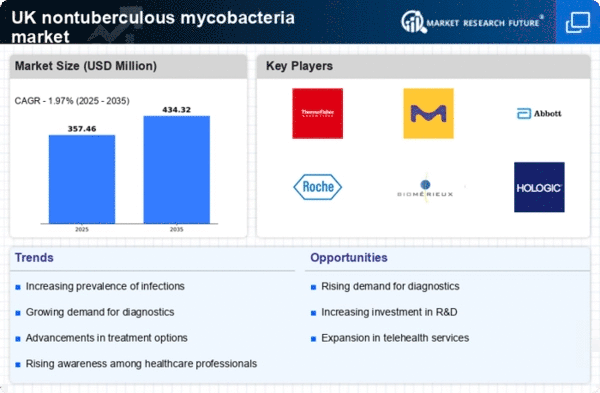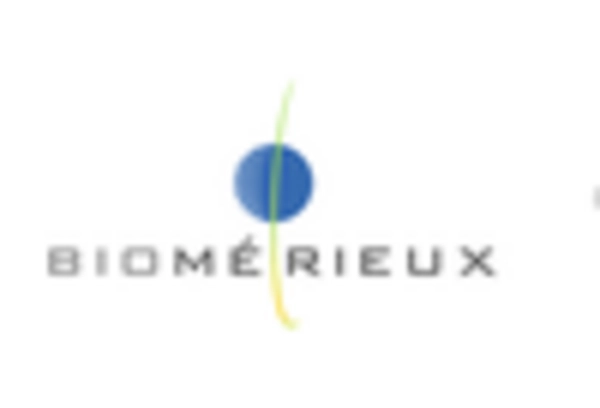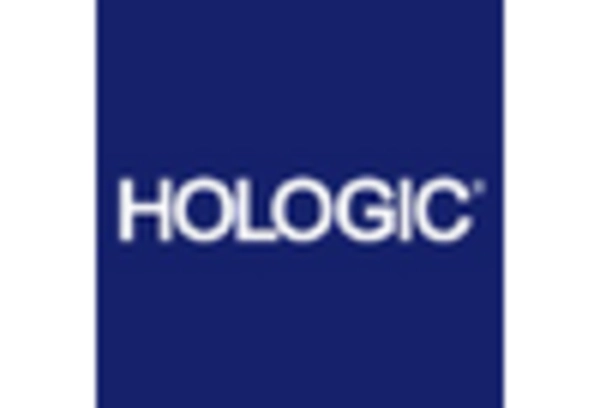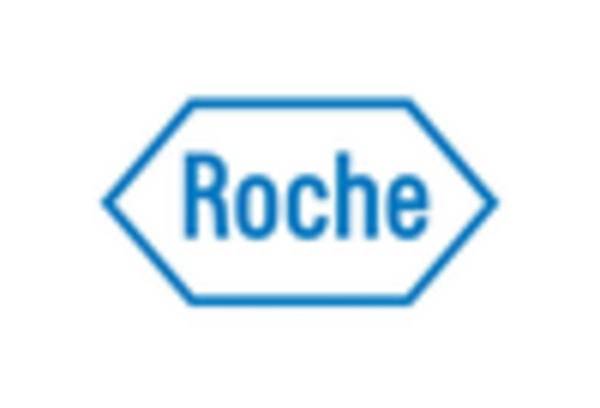Rising Geriatric Population
The increasing geriatric population in the UK is another critical driver for the nontuberculous mycobacteria market. Older adults are more susceptible to respiratory infections, including those caused by nontuberculous mycobacteria, due to age-related decline in immune function. Projections indicate that by 2030, the population aged 65 and over will account for approximately 20% of the total UK population. This demographic shift is likely to result in a higher demand for diagnostic and therapeutic solutions tailored to older patients. Consequently, the nontuberculous mycobacteria market may experience growth as healthcare providers seek to address the unique challenges posed by this vulnerable population.
Enhanced Public Health Initiatives
Enhanced public health initiatives aimed at controlling infectious diseases are likely to influence the nontuberculous mycobacteria market positively. The UK government has implemented various programs to raise awareness about respiratory infections and promote early diagnosis and treatment. These initiatives are designed to educate healthcare professionals and the public about the risks associated with nontuberculous mycobacteria. As awareness increases, it is anticipated that more individuals will seek medical attention, leading to higher diagnosis rates and subsequent treatment. This proactive approach may contribute to a projected market growth of around 10% in the coming years, as the nontuberculous mycobacteria market adapts to the evolving landscape of public health.
Advancements in Diagnostic Technologies
Technological advancements in diagnostic methods are poised to significantly impact the nontuberculous mycobacteria market. Innovations such as polymerase chain reaction (PCR) and next-generation sequencing (NGS) have enhanced the accuracy and speed of diagnosing nontuberculous mycobacterial infections. These technologies enable healthcare professionals to identify infections more rapidly, which is crucial for timely treatment. The UK healthcare system is increasingly adopting these advanced diagnostic tools, which could lead to a projected market growth of approximately 15% over the next five years. As diagnostic capabilities improve, the nontuberculous mycobacteria market is likely to expand, driven by the need for effective management of these infections.
Increased Funding for Research Initiatives
The nontuberculous mycobacteria market is experiencing a boost due to increased funding for research initiatives focused on understanding these pathogens. Government and private sector investments in research are essential for developing new treatment options and improving existing therapies. In the UK, funding for infectious disease research has seen a notable rise, with allocations reaching £50 million in recent years. This financial support is likely to foster innovation in the nontuberculous mycobacteria market, leading to the discovery of novel therapeutic agents and improved patient care strategies. As research progresses, the market may witness a diversification of treatment options, catering to the specific needs of affected populations.
Growing Incidence of Respiratory Infections
The rising incidence of respiratory infections in the UK appears to be a significant driver for the nontuberculous mycobacteria market. Reports indicate that cases of pulmonary diseases caused by nontuberculous mycobacteria have increased, with estimates suggesting that around 1 in 10 patients with chronic lung disease may be affected. This growing prevalence necessitates enhanced diagnostic and therapeutic options, thereby stimulating market growth. Healthcare providers are increasingly recognizing the need for effective treatment protocols, which could lead to a surge in demand for specialized medications and diagnostic tools. As awareness of these infections expands, the nontuberculous mycobacteria market is likely to experience a corresponding increase in investment and innovation, ultimately improving patient outcomes.
















